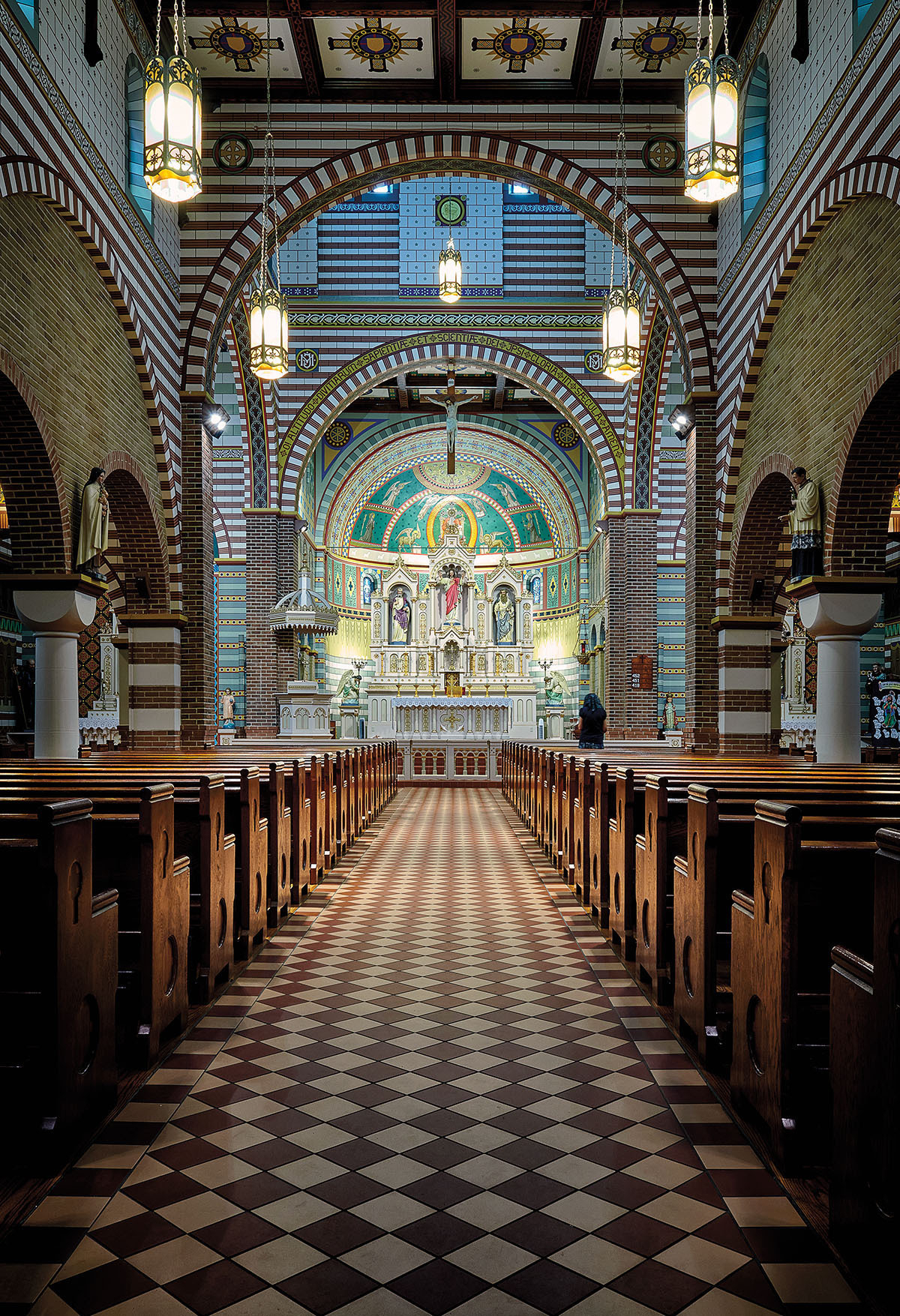security
Since It’s All About Me, when I read this and this about new security features coming in Mac OS Sequoia, I couldn’t help thinking of my recent misadventures with my hosting provider, in which unannounced changes to their security procedures borked a workflow I had been using for a decade.
One of the chief things we learned in the Covid era was that there’s no arguing with people who do anything in the name of security and safety. Those terms are the ultimate conversation-stoppers. You’re not even allowed to ask whether the new politices and procedures actually do make us more safe and secure, much less ask what other goods should be considered when we’re implementing policies.
Well, one thing I know for sure: I won’t be installing Sequoia anytime soon.
Thanks to a bunch of people for kind and sympathetic words about my current technical issues. While I’m getting the ayjay.org domain sorted — I’m determined to figure out the details and not be in this situation again — I’ll continue to post here as usual, but with some longer posts also.
On the possible end of my big blog, and my difficulties in getting the help I need to keep it alive. I’m starting to think that I don’t have the knowledge base to keep writing on the open web.
Angus strangely interested in Marvin Gaye. Well, I guess it’s not that strange, considering how cool Marvin was.

bookshelves
Douglas Anderson, a Tolkien scholar, recently reported seeing one of his books on a shelf in a TV series. The eminent critic Michael Dirda replied:
More likely the books were bought en masse, without regard for titles and attention paid largely to their color and general look on the shelf. My friend Chuck Roberts, owner of Wonder Book and Video, has a strong business in selling books by the foot for movie and theatrical sets. — Still, sometimes thought does go into these background bookshelves. I remember Chuck once asking me to recommend titles for Hannibal Lecter’s library.
This comment prompts an excellent thought experiment: What would go on Hannibal Lecter’s shelves? One might extend this to other fictional figures, which might seem like a vast field of inquiry except that many fictional movie characters obviously don’t read books at all. Tony Stark, for instance, reads only technical manuals and tweets. So: which famous movie characters read? And what do they read?
Angus says hello!

I wrote about how modern identity was effectively created by the Great War.
My dear friend Charles Marsh’s book God’s Long Summer has just been re-released as a Princeton Classic. Charles tells the fascinating story of its writing here.
Department of Putting the Best Possible Spin on a Situation: high-jumper Gianmarco Tamberi of Italy, who lost his wedding ring in the Seine during the opening ceremonies of the Olympics, says, “It will remain forever in the city of love.” 💯
the state and the people
A few years ago I published an essay called “Miss Marple and the Problem of Modern Identity,” in which I described the rise of certain technologies by which people have become “legible” to the state. At that point I had not read a classic, though a somewhat controversial classic, of history, A. J. P. Taylor’s English History, 1914-1945. I am reading it right now, and when I saw the book’s first two paragraphs I thought, Damn, I wish I had known this when I wrote that essay. Here they are:
Until August 1914 a sensible, law-abiding Englishman could pass through life and hardly notice the existence of the state, beyond the post office and the policeman. He could live where he liked and as he liked. He had no official number or identity card. He could travel abroad or leave his country for ever without a passport or any sort of official permission. He could exchange his money for any other currency without restriction or limit. He could buy goods from any country in the world on the same terms as he bought goods at home. For that matter, a foreigner could spend his life in this country without permit and without informing the police. Unlike the countries of the European continent, the state did not require its citizens to perform military service. An Englishman could enlist, if he chose, in the regular army, the navy, or the territorials. He could also ignore, if he chose, the demands of national defence. Substantial householders were occasionally called on for jury service. Otherwise, only those helped the state who wished to do so. The Englishman paid taxes on a modest scale: nearly £200 million in 1913-14, or rather less than 8 per cent. of the national income. The state intervened to prevent the citizen from eating adulterated food or contracting certain infectious diseases. It imposed safety rules in factories, and prevented women, and adult males in some industries, from working excessive hours. The state saw to it that children received education up to the age of 13. Since I January 1909, it provided a meagre pension for the needy over the age of 70. Since 1911, it helped to insure certain classes of workers against sickness and unemployment. This tendency towards more state action was increasing. Expenditure on the social services had roughly doubled since the Liberals took office in 1905. Still, broadly speaking, the state acted only to help those who could not help themselves. It left the adult citizen alone.Highlighting mine. Of course it would be war that created the bureaucratic mechanisms of modern identity, for, as Randolph Bourne famously wrote, “War is the health of the state. It automatically sets in motion throughout society those irresistible forces for uniformity, for passionate cooperation with the government in coercing into obedience the minority groups and individuals which lack the larger herd sense.”All this was changed by the impact of the Great War. The mass of the people became, for the first time, active citizens. Their lives were shaped by orders from above; they were required to serve the state instead of pursuing exclusively their own affairs. Five million men entered the armed forces, many of them (though a minority) under compulsion. The Englishman’s food was limited, and its quality changed, by government order. His freedom of movement was restricted; his conditions of work prescribed. Some industries were reduced or closed, others artificially fostered. The publication of news was fettered. Street lights were dimmed. The sacred freedom of drinking was tampered with: licensed hours were cut down, and the beer watered by order. The very time on the clocks was changed. From 1916 onwards, every Englishman got up an hour earlier in summer than he would otherwise have done, thanks to an act of parliament. The state established a hold over its citizens which, though relaxed in peacetime, was never to be removed and which the second World war was again to increase. The history of the English state and of the English people merged for the first time.
I’m just making notes for later reflection here, but: The creation of this identity system led to a complex and ever-shifting pattern of relation between the state and modern capitalism. James Burnham, in his landmark book The Managerial Revolution, argued that the comprehensive power of the state would lead to the rise of a managerial class that would take power away from the capitalists. But it hasn’t really worked out that way, has it?
When I come back to these issues — which I will do eventually — I expect to say a little more about Bourne and Burnham, about George Orwell’s reviews of Burnham, and about anarchism. And maybe even about the Church.
The other day I sang the praises of USWNT defender Naomi Girma, whom I’ve been watching with delight this whole tournament. Turns out Emma Hayes agrees with me: “Look, she’s the best defender I’ve ever seen.” ⚽️
Whenever they cut to the beach volleyball at the Paris Olympics, I shout, “Sous les Pavés, la Plage!” (Explanation.)
David French’s interview with Justice Neil Gorsuch is great.
WSJ:
OpenAI has a method to reliably detect when someone uses ChatGPT to write an essay or research paper. The company hasn’t released it despite widespread concerns about students using artificial intelligence to cheat.
In trying to decide what to do, OpenAI employees have wavered between the startup’s stated commitment to transparency and their desire to attract and retain users. One survey the company conducted of loyal ChatGPT users found nearly a third would be turned off by the anticheating technology.
What a moral conundrum!
styles of acting, styles of being
One of my favorite YouTubers is Thomas Flight, who makes videos about movies. In a recent video, he contrasts the “theatrical” acting style of classic Hollywood movies with the “naturalistic” style of today’s movies. Flight’s treatment of this issue is better than most, but he overlooks a key point — one that almost everyone who discusses this issue overlooks.
The difference in acting styles is real enough, and obvious to all. And if you ask people who are bothered by older acting styles why they are bothered, they’ll almost always say something like this: “People just don’t talk that way.” To which the proper response should be: “Are you sure about that?”
After all, how do we know what ordinary people — unphotographed people, unrecorded people — talked like 80 or 90 years ago? That’s not information we have access to, because we weren’t there. Even if we know people who are very old, we can’t confirm that their speaking style now is identical to what it was when they were young. Everyone’s speech is, to some greater or lesser extent, shaped by their social context. We don’t learn our words from dictionaries, but from other people. Surely everyone notices the way that people pick up words, phrases, intonations, and gestures from friends. Our verbal acquisitiveness slows down as we get older but it never stops — and a lot of humor arises from this, as senior citizens have a tendency to appropriate language inaccurately.
(Among filmmakers, the Coen brothers are specially aware of how all this works. For instance, Maud Lebowski refers to a penis as a “Johnson,” which puzzles the Dude — “Johnson?” — but then later in the movie he’s using the term himself. I could cite several examples from other Coen movies. And among scholars the best writer on this subject is of course Bakhtin.)
Moreover, everyone code-switches to some extent — that is, employs different linguistic resources according to audience and context — and how they talk in any one situation is but a partial indication of “how they really talk.” So, when public figures get secretly recorded, listeners often feel that they’ve received some insight into “what they’re really like,” but that’s not true. We’re just finding out how they behave in one context among many. And public figures, like all of the rest of us, are constantly assessing what kind of language a given situation calls for and adjusting their talk (or writing) accordingly. The idea that there is one linguistic mode which is “authentic” or “natural” to us is a fantasy.
Which also means that the concept of “naturalistic acting” is pretty fuzzy. “Natural” in what context, and in comparison to what? The assumption most people (including Thomas Flight) make when discussing these matters is that, for any given situation across time, there’s a standard “way that people talk” in relation to which some styles of acting are more “theatrical” and others more “natural.” Clark Gable and Claudette Colbert talk to each other in one style, while Adam Driver and Scarlett Johansson talk to each other in a different style, and the latter is more natural than the former — on the assumption that unphotographed and unrecorded couples, in privacy, spoke pretty much the same way in 1934 as they do in 2019.
But we don’t know that, do we?
What if the conventions of private speech between two lovers were more formal then than they are now — or anyway would strike us as more formal? And what if the dominant style of acting in 2019 isn’t quite as close to private speech as we assume? It could be that
Gable/Colbert : 1934 private speech :: Driver/ScarJo : 2019 private speech
We just don’t know for sure, and maybe (probably) can’t know.
I’ve had a version of this post in my drafts folder for some time, though it didn’t mention Thomas Flight, because he hadn’t made the relevant video then. One of the writers Flight quotes in his video is The Method: How the Twentieth Century Learned to Act, by Isaac Butler, and what originally prompted this post was Simon Callow’s review of that book. In it he writes,
The notion that there is some sort of immutable gold standard for truthful acting is deeply unreliable: cometh the hour, cometh the actor. When David Garrick, nimble and quick-witted, first leaped onto the scene with his dazzling realism and lightning changes of mood, the portly and impressively slow-moving James Quin, hitherto the darling of the pit, was heard to remark, “If the young fellow was right, he, and the rest of the players, had all been wrong.”“Actors are never admired for being unnatural.” Every development in acting style is praised for drawing closer to “real life,” to “the way people really talk.” But maybe styles of acting change because styles of being-in-the-world have already changed. Maybe we change first — we, “those wonderful people out there in the dark,” as Norma Desmond so memorably calls us — and the actors obediently follow our lead.Garrick’s quicksilver transformations, so expressive of the Age of Enlightenment, were in turn supplanted by Edmund Kean’s dark and dangerous Romantic intensity. Each was initially admired for being more real than his predecessors; actors are never admired for being unnatural. In 1935 Laurence Olivier’s performances in Romeo and Juliet (he alternated the parts of Romeo and Mercutio) were regarded as ultrarealist; ten years later, in his Shakespeare films, it is clear that he was a somewhat stylized actor; on stage twenty years after that he was dismissed by many as monstrously mannered. His acting had not changed; the temper and taste of the times had. The shock of the new has a built-in decay, and it is in the nature of pioneers to believe that they have finally reached the promised land, the end of the rainbow.
Currently listening: Danish String Quartet, Last Leaf. One of my most-listened-to records of the past five years. ♫
I do not have the time to be as into these Olympics as I am.
